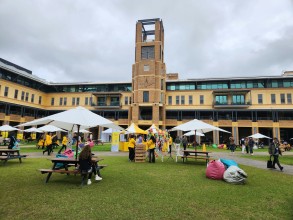News & Blogs
Financial Planning for Studying Abroad: Scholarships and Loans

Understanding Cost of Studying Abroad
Studying in another country is a dream for many students. It can give you a better education, new experiences, and more job opportunities to earn way more money. But before you go, it’s very important for you to know how much it will cost, about scholarships, loads etc. This is called financial planning.
Let’s break it down into simple steps.
What Are the Main Costs?
When you plan to study abroad, there are many things you will need to pay for, such as:
- Tuition Fees: This is the money you pay to the university for your course when you study there. It can be different depending on the country and the course you choose, it may be cheaper or more expensive.
- Living Expenses: You will also need money to pay for a place to stay (rent), food, transport, internet, and other daily needs which is quite a lot so be prepared.
- Visa and Travel Costs: You will need to apply for a student visa. You also need to buy flight tickets and may have to pay for travel insurance.
- Health Insurance: Most countries also ask international students to have health insurance. This can help pay for doctor visits or hospital bills if you get sick.
- Books and Study Materials: Some courses need materials such as books, tools, or laptops. These can also cost you extra money to spend on.
- Emergency Money: It's always a smart idea to keep a little extra money saved for emergencies, like if you get sick or miss a flight.
Always make a full list of expected costs. Try to talk to someone who already studied in that country like your friend or relatives. And don’t forget to also ask for help from one of top consultancy in Kathmandu like our Global Education Counselling Centre.
Scholarships: Earning Your Education

Studying abroad can be expensive, but don’t worry, there are also ways to get help and reduce this burden by quite a lot. One of the best ways is by getting a scholarship. A scholarship is free money given to students so they can pay for their studies. The best part is that you don’t have to pay it back, so you can comfortably study without any tension, and you can also do a part-time job while at it!
Let’s understand how scholarships work, and how students from Nepal can apply for them.
What Is a Scholarship?
A scholarship is money given to students by universities, governments, or private groups. This money helps pay for your:
- Tuition fees (your course)
- Living expenses (your rent, food, transport)
- Books and study materials
Many students from Nepal who want to study abroad apply for scholarships to reduce the total cost.
Types of Scholarships
There are many different scholarships, depending on your situation:
- Merit-Based Scholarships
Given to students who have good marks or are very talented. - Need-Based Scholarships
For students who need financial help. - Country-Specific Scholarships
Some countries also provide scholarships just for Nepali students. For example:- Australia Awards Scholarships
- Indian ICCR Scholarships
- Korean Government Scholarship Program (KGSP)
- University Scholarships
Many universities also provide their own scholarships for international students. - Government and NGO Scholarships
Some are provided by big organizations or governments, like:- Chevening (UK)
- Fulbright (USA)
- Erasmus+ (Europe)
How to Find and Apply for Scholarships
Many students don’t know where to start. That’s why going to a study abroad consultancy in Nepal like our Global Education Counselling Centre can be very helpful and important to do. We will help you:
- Find the right scholarships for your course and country
- Prepare all the needed documents (transcripts, essays, recommendation letters)
- Fill out applications correctly and on time
- Describe you in detail on how to get scholarship and the process involved
You can also use scholarship search websites like:
- ScholarshipPortal
- DAAD (for Germany)
- Study in Australia
- Chevening.org
Helpful Tips to Win a Scholarship
- Start early — many scholarships close 6–12 months before your course starts.
- Write a strong personal statement.
- Get recommendation letters from your teachers.
- Keep your academic marks high.
- Apply to more than one scholarship.
Final Thought
Getting a scholarship is one of the best ways to reduce your costs when you plan to study abroad. Even a small scholarship can help a lot. So, take help from a consultancy in Kathmandu like our Global Education Counselling Centre and apply with confidence!
Student Loans

If you don’t get a full scholarship or if it doesn't cover everything, don’t worry as there is another method too which is taking a student loan. Many students from Nepal use student loans to help pay for studying abroad. A student loan is money you borrow now and pay back later, after finishing your studies.
But it’s very important for you to plan carefully before taking a loan.
Here's what you need to know:
What Can a Student Loan Cover?
- Tuition fees (your course)
- Living expenses (rent, food, transport)
- Visa and travel costs
- Health insurance
- Books, laptop, and other study materials
Where Can Nepali Students Get Loans?
- Banks in Nepal: Many banks provide education loans to students who are going abroad. You may need a co-signer (like a parent) or collateral (like land or property) to get the loan though.
- Government programs: Some government banks have special education loan schemes.
- International lenders: Companies like Prodigy Finance and MPOWER give loans without asking for collateral. These are good options for students who are going to countries like the USA, UK, or Australia.
What Should You Check Before Taking a Loan?
- Interest rate: This is the extra money you must pay with the loan.
- Loan repayment time: Some lenders give you time (a "grace period") after graduation to start paying back the loan.
- Collateral: Some loans require property as a guarantee. While some do not.
- Currency exchange: If your loan is in Nepali rupees but your course is abroad, be sure to keep an eye on the exchange rates.
Who Can Help You with the Process?
- Many students come to our Global Education Counselling Centre to understand their loan options clearly.
- Consultancies like our Global Education Counselling Centre can help you:
- Choose the right bank or lender
- Prepare loan applications
- Understand repayment plans
- Find out if you need a co-signer or collateral
Final Tips
- Always read the loan agreement carefully without missing anything, try not to miss even a little detail.
- Compare loans from different banks and lenders to find the best and reliable one.
- Ask questions if you're not sure from a trusted consultancy in Nepal like our Global Education Counselling Centre by contacting us we will explain everything in detail.
- Don’t borrow more than you need.
With the right guidance and careful planning, a student loan can help make your dream to study abroad come true. Just make sure you understand how it works and how to pay it back.
Combining Scholarships and Loans
Students from Nepal who want to study abroad also use both scholarships and loans. This is a smart way to manage the full cost of education. If you get a partial scholarship, you can cover the rest of the cost with a student loan. This helps you study at a good university without putting too much financial pressure on your family.
Why Combine Both?
-
Scholarships reduce your total cost — it's free money you don’t have to pay back.
-
Loans help you pay the remaining costs — like rent, food, or tuition that the scholarship doesn’t cover.
-
You get flexibility — you don’t have to rely only on one source of funding.
How to Plan the Right Mix
-
First, apply for as many scholarships as possible
-
Look for university scholarships, government scholarships, and private scholarships.
-
Visit our Global Education Counselling Centre or some other study abroad consultancy in Nepal to find suitable scholarships.
-
-
Next, calculate how much money you still need
-
Add up your tuition fees, living expenses, travel, insurance, and other costs and estimate the expense you may encounter.
-
Subtract the amount covered by your scholarship.
-
The remaining amount is what you may need to borrow through a student loan.
-
-
Then, find the right loan
-
Compare education loans from banks or international lenders like Prodigy Finance.
-
Properly ask about interest rates, repayment plans, and collateral requirements.
-
-
Finally, make a monthly budget
-
Plan how you’ll spend your money while studying.
-
This helps you avoid overspending and saves money for loan repayments later.
-
Who Can Help?
-
Consultancy in Nepal like our Global Education Counselling Centre can help you build the right financial plan for studying abroad.
-
A good consultancy in Nepal like our Global Education Counselling Centre will:
-
Help you apply for scholarships and loans at the same time
-
Guide you on how to prepare required documents
-
Help you make a budget that fits your financial situation
-
Give tips on saving money and part-time work abroad
-
Benefits of a Balanced Strategy
-
You pay less from your own pocket.
-
You borrow only what is needed, reducing debt.
-
You can study at a better university without money worries
Tips for Long-Term Financial Success

Studying abroad is a big investment, so managing your money well is very important.
With the right plan, you can avoid money problems during and after your studies.
Before You Go
- Make a monthly budget including tuition, rent, food, and other costs.
- Try to choose affordable cities or universities.
While You Study
- Follow your budget and avoid spending too much.
- Try to find and work part-time if your visa allows it.
- You can also use apps to track your spending.
- Avoid using credit cards too many times.
After Graduation
- Plan early to repay your student loan.
- Look for jobs in your study country.
- Save money whenever possible.




